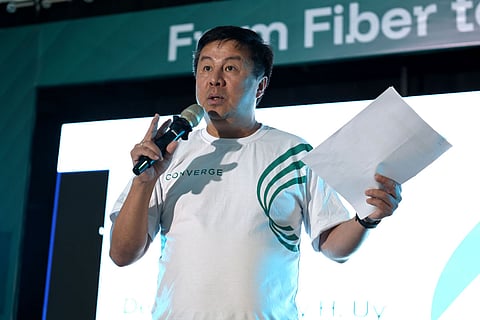
- NEWS
- the EDIT
- COMMENTARY
- BUSINESS
- LIFE
- SHOW
- ACTION
- GLOBAL GOALS
- SNAPS
- DYARYO TIRADA
- MORE

In 2025, the Philippines has reached a pivotal juncture in its digital transformation journey, as a projection from an earlier study commissioned by Google Philippines and conducted by AlphaBeta highlights that digital technologies could contribute up to P5 trillion in annual economic value by 2030, a figure that remains a key benchmark as the country intensifies efforts in 2025 to accelerate digital adoption across all sectors.
Yet, despite this potential, for many Filipinos, particularly in geographically-isolated and disadvantaged areas (GIDAs), access to reliable and affordable internet remains a challenge.
Unified push toward inclusion
Bridging this divide demands more than just infrastructure; it requires strategic collaboration between the public and private sectors.
The Department of Information and Communications Technology (DICT), through its “Broadband ng Masa Program,” is expanding free WiFi installations in schools, hospitals, and community spaces.
Moreover, the government is exploring low-earth orbit (LEO) satellites to extend coverage to remote areas that fiber infrastructure alone cannot yet reach.
Meanwhile, private players are reinforcing this mission, as Converge ICT has extended its pure fiber network to cover over 60 percent of households, reflecting their commitment to delivering fast, affordable, and accessible internet across the archipelago.
The objective is straightforward: to ensure no Filipino is left behind in the digital revolution.
“Bridging the digital divide requires bold innovation and meaningful collaboration,” said Dennis Anthony Uy, CEO and co-founder of Converge ICT and current chairperson of the 51st Philippine Business Conference and Expo (PBC&E).
“No sector can advance alone in building a connected nation. From classrooms to commerce, digital access fuels growth. It takes collective effort, innovation, and infrastructure to make that access truly nationwide,” he added.
Vision of a connected Phl
According to the Philippine Chamber of Commerce and Industry (PCCI), they will not stop advocating for policies that directly address connectivity bottlenecks — from streamlining the permitting process for ICT infrastructure rollout, to incentivizing investments in underserved areas, and ensuring equitable spectrum allocation for service providers.
PCCI also emphasized that digital infrastructure must be developed alongside transport and logistics systems, enabling MSMEs (micro, small and medium enterprises) to fully integrate into both physical and online markets. These policy priorities aim to create an enabling environment where technology and infrastructure investments translate into measurable, nationwide connectivity gains.
Connectivity matters
The urgency of digital inclusion becomes even more pronounced when viewed through the lens of our micro, small and medium enterprises which make up over 99.5 percent of all businesses in the Philippines.
With better connectivity, MSMEs can embrace e-commerce, cloud computing, and digital payment systems, enabling them to compete in both domestic and global markets. Unlocking this potential means empowering our economy’s backbone to thrive in a tech-driven world.
There is progress. The Philippines now ranks 58th in fixed broadband and 65th in mobile internet, based on Ookla’s Speedtest Global Index as of June 2025.
While this reflects ongoing improvements, especially in urban centers, we still trail behind regional peers in both speed and reach.
The task ahead is clear: continue building future-ready infrastructure while aligning policies and regulations that prioritize accessibility, affordability, and quality of service.
These issues — technology, access, and collaboration will take center stage at the 51st Philippine Business Conference and Expo (PBC&E), where Uy will spearhead discussions around future-ready infrastructure and the role of public-private synergy in driving inclusive national progress.
PCCI will also use this platform to rally stakeholders behind a unified connectivity agenda — one that aligns government investment programs like Build Better More, with private sector innovation and policy reform to accelerate digital access for all Filipinos.
“The digital economy does not thrive in silos. It demands partnership across sectors, bold policymaking, and an unwavering focus on inclusion. By working together — government, business, and community — we can close the digital divide and open new opportunities for every Filipino, wherever they live. It is time to bridge the wide gap, not just with wires and signals, but with shared purpose and vision,” according to Uy.
